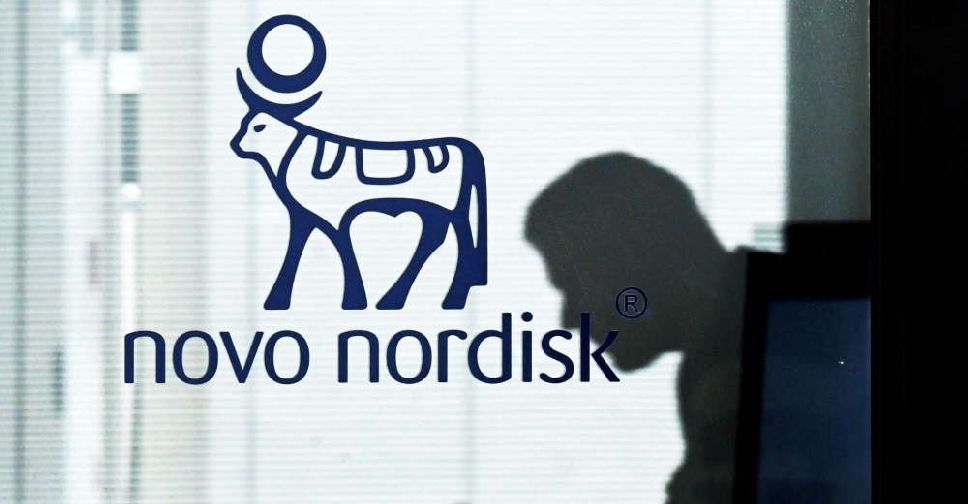
Novo Nordisk on Friday revealed disappointing results in a late-stage trial for its experimental next-generation obesity drug CagriSema, wiping as much as $125 billion off its market value.
The lower-than-expected weight loss from the drug candidate deals a blow to the Danish company's ambitions for a successor to its Wegovy weight-loss drug that is more powerful than Eli Lilly's rival Zepbound, also known as Mounjaro.
Investors and analysts had eagerly awaited this data as a test of Novo's case that it has a strong pipeline of drugs to follow Wegovy in the fiercely competitive anti-obesity market.
The CagriSema trial showed the drug helped patients cut their weight by 22.7%, below the 25% Novo Nordisk had expected.
Novo's shares fell as much as 27% after the results were announced, hitting their lowest since August 2023 in one of the biggest one-day wipe outs on record for a European company. They were down 18.8% at 1225 GMT.
Shares in US rival Lilly rose more than 7% in pre-market trade.
Novo said if all people adhered to treatment with CagriSema, patients overall achieved weight loss of 22.7% after 68 weeks, with 40.4% losing 25% or more.
CagriSema is a weekly injection combining semaglutide, which is the active ingredient in Wegovy and mimics the gut hormone GLP-1, and a separate molecule called cagrilintide that mimics the pancreatic hormone amylin.
The two hormones combined suppress hunger and help control patients' blood glucose.
The results are a "worst case-scenario" for Novo, said Markus Manns, portfolio manager at mutual funds firm Union Investment, a Novo and Lilly shareholder.
"CagrisSema is only as good as Zepbound, but more complex to manufacture," he said.
Lilly's own obesity injection - sold as Zepbound in the United States - led to an average weight loss of nearly 23% in clinical trials.
The data from Novo's CagriSema Phase III trial was based on about 3,400 people with a body mass index (BMI) of 30 or above or people with a BMI of 27 and at least one weight-related comorbidity like hypertension or cardiovascular disease.
Martin Holst Lange, Novo Nordisk's executive vice president for development, said Novo was "encouraged" by the data. He said only 57% of patients in the trial reached the highest dose.
Alexander Jenke, a portfolio manager at Medical Strategy in Munich, and a Novo shareholder, said this would indicate that there were issues regarding tolerability among some patients.
He said there may have been higher rates of gatrointestinal adverse events such as nausea, vomiting and diarrhea.
Nordea analyst Michael Novod said patients may have stopped the injections after hitting a satisfactory weight loss.
While the trial missed expectations, the severe share price reaction is overdone, Novod said.
"Despite the disappointing results, CagriSema is still the best weight loss reported in a Phase 3 trial," he said.
Investors noted that the two other patient groups in the trial which were either given only cagrilintide or semaglutide, much higher percentages of patients reached the highest dose: 83% for the cagrilintide arm and 70% for semaglutide.
The company did not immediately respond to a request for comment on why more patients did not reach the highest dose.
Novo said in its statement the drug had similar side effects compared with its GLP-1 drugs already on the market. The most common adverse events with CagriSema were gastrointestinal, and the vast majority were mild to moderate and diminished over time, consistent with the GLP-1 receptor agonist class, it said.
Novo Nordisk plans to start a new trial in the first half of next year to further explore CagriSema's additional weight-loss potential, a Novo Nordisk spokesperson said.
It expects to submit the drug for regulatory approval towards the end of 2025.
Novo's trial is the most advanced for an amylin drug candidate currently being tested in the market.
The success of Wegovy helped make Novo Europe's biggest company by market capitalisation, worth more than $460 billion.
Its shares have been under pressure this year, however, significantly underperforming those of chief rival Lilly, due mainly to concerns Novo may be losing its first-mover advantage in the obesity drug race.
Simon Baker, head of global biopharma research at Redburn Atlantic in London, said CagriSema with a 23% weight-loss result may still be commercially viable in the long run.
"The 27% drop (in the share price) is completely out of proportion fundamentally, but positioning around this event was huge and it will take a while for this to stabilise," he said.



 'Economic Content Creators’ programme caps first week
'Economic Content Creators’ programme caps first week
 DEWA SAT-1 sends 2,690 MB of data related to its work to ground station
DEWA SAT-1 sends 2,690 MB of data related to its work to ground station
 Amazon workers to strike at US warehouses during busy holiday season
Amazon workers to strike at US warehouses during busy holiday season
 H.H Sheikh Mohammed issues new laws to enhance Dubai’s media sector
H.H Sheikh Mohammed issues new laws to enhance Dubai’s media sector


